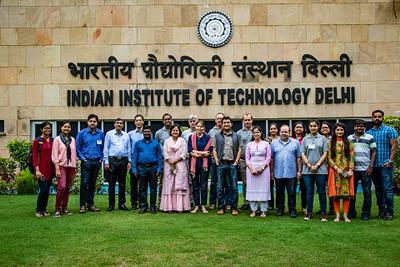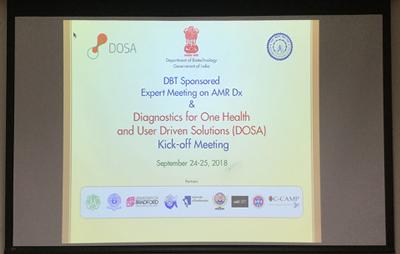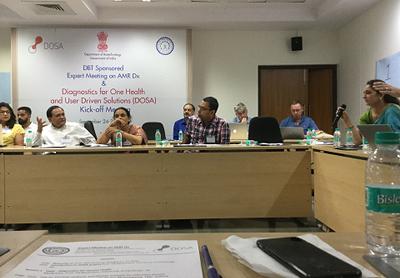UK-India AMR project underway following kick-off meeting in Delhi

NAMRIP’s expansion to Low- and Middle-Income Countries, to form Global-NAMRIP, received a boost with our role in a new research network in India.
A £3 million interdisciplinary research project has been launched to address the growing threat of drug-resistant infections in India. The project will develop innovative diagnostics to curb antimicrobial resistance (AMR), one of the biggest threats to global public health. AMR describes the situation when infections agents – including bacteria and parasites such as malaria – become resistant to the medicines used to treat them.
The DOSA programme – Diagnostics for One Health and User Driven Solutions for AMR – brings together nine leading academic institutions, five from India and four from the UK. Medical researchers, diagnostic innovators, economists and social scientists will create cutting edge, rapid diagnostic solutions to fight AMR in settings as diverse as community healthcare, dairy farms and aquaculture.

Indian health issue
AMR is of particular concern in India, where the levels of infectious diseases are high but public knowledge of diseases and appropriate treatments is low. In India, and across the globe, antibiotic use is regularly carried out without appropriate diagnostics, thereby fuelling the AMR crisis. Rapid diagnostic tools are either unavailable, too expensive or do not fit people’s needs, which leads to antibiotics being used in a trial and error fashion.

Collaborative project
The three-year DOSA programme began with a meeting of the project group on 24-25 September at the Indian Institute of Technology Delhi. The project is jointly funded by UK Research and Innovation/Economic and Social Research Council, the Newton Fund, and Government of India’s Department of Biotechnology. Indian partners include the Indian Institute of Technology Delhi; the Centre for Cellular and Molecular Platforms Bangalore; ICAR-Central Institute of Fisheries Technology, Cochin, Kerala; ICAR-National Dairy Research Institute, Karnal, Haryana; Silchar Medical College and Assam University, Silchar, Assam. UK partners include the Universities of Edinburgh, Bradford and Southampton and University of the Arts London.
“The Southampton team will be focused on the development of a microfluidic platform for rapid and multiplex testing of AMR susceptibility”, added Professor Xunli Zhang of the School of Engineering at the University of Southampton.